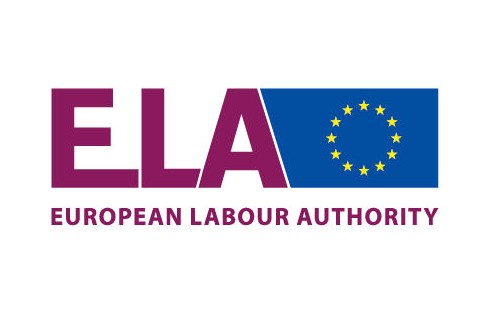EUROPEAN LABOUR AUTHORITY STARTS ITS WORK
Today, the European Labour Authority starts its activities with an inaugural ceremony and the first meeting of its Management Board. The launch takes place two years after European Commission President Jean-Claude Juncker announced the idea for such an Authority in his 2017 State of the Union address before the European Parliament.
Marking the event, President Juncker said: “The European Labour Authority is the cornerstone in our work to make EU labour rules fair, effective and enforceable. It is no surprise that the Authority was established in record time, given its great necessity. The Authority will provide workers and employers with better access to information on their rights and obligations and will support national labour authorities in their cross-border activities. This will directly support the millions of Europeans who live or work in another Member State as well as the millions of businesses operating cross-border in the EU. This is another major step towards an integrated European labour market built on trust, reliable rules and effective cooperation. I want to thank all those – in the Parliament, the Council and the Commission – who have made the Authority a reality. I wish it every success.”
President Juncker will participate in the opening ceremony in Brussels together with the Prime Minister of Slovakia, Peter Pellegrini, given Member States' choice of Bratislava as the Authority's location. Commission Vice-Presidents Valdis Dombrovskis and Maroš Šefčovič, Commissioner Marianne Thyssen and other guests will also attend.
Vice-President Dombrovskis said: “The European Labour Authority brings national authorities together. Both in its governance structure and day-to-day operations, the Authority will facilitate the cooperation between Member State representatives, as well as social partners.” Commissioner Thyssen added: “The Labour Authority will be the oil in the machinery of the internal market. A place where colleagues from different national authorities become used to working together and solving problems together. This will make the wheels of labour mobility turn more smoothly, to the advantage of millions of European citizens and businesses that make use of their right of free movement every day.”
The Management Board of the Authority consists of representatives of Member States, of the Commission, EU-level social partners, European Parliament, as well as observers from Iceland, Liechtenstein, Norway, Switzerland and other EU Agencies in the field of employment and social affairs. On 17 October, they will meet for the first time to adopt the necessary decisions to put the Authority into action and share their views on the initial work programme.
Background
Around 17.5 million European citizens currently live or work in another Member State – twice as many as a decade ago. At the same time, millions of businesses operate across borders.
The EU has developed a substantial body of legislation regulating different aspects of mobility, which the Juncker Commission has revised and improved over the past years. In particular, the EU has now revised the rules on posting of workers, enshrining the principle of equal pay for equal work at the same place, and is currently aiming to adopt a final agreement on the proposed revised rules on the coordination of social security systems. To facilitate enforcement of the rules, this Commission proposed to set up a new Authority as a way to reinforce structured cooperation and exchange between competent national authorities.
The European Labour Authority has the following objectives:
- Facilitate access to information and services to citizens and business about their rights and obligations;
- Facilitate cooperation between Member States in the enforcement of Union law within its scope, including by facilitating concerted and joint inspections, as well as by tackling undeclared work;
- Mediate and facilitate solutions in cases of cross-border disputes.
The activities of the European Labour Authority relate to rules on labour mobility: free movement of workers and the posting of workers, social security coordination, and specific legislation in the road transport sector.
No new competences will be created at EU level, and Member States will remain fully in charge of enforcement of labour and social security rules. The Authority's added value stems from the fact is that it will facilitate cooperation between Member States, streamline existing structures and provide operational support, ensuring more efficient enforcement of rules. In this way, citizens, business and national authorities alike can all benefit. For national authorities in particular, the Labour Authority will improve cooperation on labour mobility by providing a permanent EU structure based on National Liaison Officers seconded by Member States to the European Labour Authority. The Authority will also allow for the pooling of resources for common activities, such as the organisation of joint inspections or training national staff to deal with cross-border cases.
Following President Juncker's 2017 State of the Union address, the Commission presented its proposal for a Regulation establishing the Authority in March 2018. A provisional deal was reached between the Parliament and the Council in February 2019, less than a year after the initial proposal.
The European Parliament and the Council formally adopted the proposal on 20 June 2019. The Authority started its activities in Brussels, and it will progressively build up financial and human resources up to a yearly budget of €50 million and 140 staff by 2024.
On 13 June, Member States agreed that Bratislava should ultimately host the seat of the new Authority.
For More Information
MEMO: European Labour Authority starts its activities: Question and Answers
Factsheet: Towards fair labour mobility: Setting up a European Labour Authority
Website of the European Labour Authority






